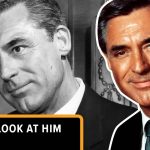Jack Barry was a game show host, television executive, and media personality that best known for his work on game shows. Throughout his career, he hosted a number of quiz show; quite a few of which he helped develop alongside producer Dan Enright with their jointly operated company Barry & Enright Productions.
While Barry at one point held in high regard by the viewing public; his reputation took a huge hit that he never fully recovered from due to his admitted involvement in the infamous 1950s quiz show scandals. The fallout from that controversy adversely affected his career in the spotlight for years to come.
If you’re not familiar with this scandal, prepare to have your mind blown. If you think that modern-day game shows are rigged to some degree; You’re going to be shocked by what actually happening in the 50s. We’ll cover this dark era in American television history as well as a bit of Jack Barry’s life story in this revealing video. After you’ve finished watching, be sure to let us know in the comments what your favorite game show of all time is.
Jack Barry’s Early life
Barry was born on the 20th of March, 1918, in Lindenhurst, New York. He raised in a Jewish family and graduated from Lindenhurst High School before enrolling at the University of Penssylvania’s Wharton campus in Philadelphia. In the 40s, Barry started hosting radio programs on AM 710 WOR. In the process, he met his lifelong business partner Dan Enright.
Once the age of television broadcasting had begun, Barry and Enright immediately got to work developing local programming; before eventually getting a chance to work on national shows. One of Jack’s early career successes was developing the hit children’s program. Winky Dink and You, which promoted as the world’s very first interactive TV program.
By the early 50s, Barry and Enright had started working in the field of game shows, with Barry hosting the NBC program The Big Surprise. Barry inevitably fired from the show, and Mike Wallace brought in to replace him. After getting dismissed from that show, Barry became interested in coming up with his own game shows instead.
Not to get too off-topic, but if you’re enjoying this video so far; take a moment to show us a little support by giving this video a like and by subscribing to the FactsVerse channel if you haven’t already. Stay put, because we still have quite a bit of history to cover. You won’t believe how hard Jack Barry fell after it came out that the quiz shows that he helped develop had rigged.
The Quiz Show Scandals
Barry and Enright launched the shows Tic-Tac-Dough and Twenty-One in 1956. Both of these programs hosted by Jack. It came out in the late fifties that both of these show had fixed. In 1992 it revealed in a PBS documentary that the day after the first episode of Twenty-One aired. The show’s sponsor Geritol complained that the episode too dull seeing as how the two contestants repeatedly flubbed when answering questions.
Enright admitted in that documentary that from that moment onward; he and Barry made the decision to fix the show to make it more interesting. Twenty-One was then rigorously engineered; everything from how the contestants behaved on the show to the answers being spoon-fed to them; making them complicit in the unprecedented deception.
A 1958 match between returning champion Herb Stempel and challenger Charles Van Doren discovered to have been completely rigged. Van Doren’s victory reportedly completely pre-determined by the show’s producers.
In a matter of months after the public learned of the ongoing deception, Twenty-One canceled.
Another one of Barry and Enright’s productions, Tic Tac Dough, also canceled.
In 1958, another show not developed by Barry and Enright called Dotto, came under fire when contestant Edward Hilgemeirer Jr; sent a sworn affidavit to the FCC three months after appearing on the program claiming that he had discovered a notebook backstage that contained all the answers that contestant Marie Winn had delivered on set.
Barry went on to host a nighttime incarnation of a new show that he and Enright had developed alongside Buddy Piper and Robert Noah called Concentration. As the quiz show scandal continued to make headlines, Barry ended up leaving Concentration after only four months. Barry and Enright left with no other choice than to sell the rights to their shows to NBC.
Although Enright and his colleague, producer Albert Freedman; were the ones that actually pulled all of the strings when rigging Twenty One, Barry later admitted in the 70s and 80s that he was the one who covered up his partner’s wrongdoing.
Even though he might not have the one that did all of the actual rigging; Barry wasn’t opposed to what he would call ‘juicing’ up a game show. After the Tic Tac Dough and Twenty-One scandals left his career in a state of uncertainty; he would still attempt to pull off the same kind of sleazy tactics.
It’s been reported that when Barry working on a pilot episode of a production with Mark Goodman and Bill Todman, he insisted upon filming canned ‘spontaneous’ responses from the contestants. Barry gave the participants scripted lines to make them come off as being funnier. In fact, this is something that isn’t altogether uncommon when it comes to pilots for game shows. They often contain scripted elements, even to this day, for the purpose of selling the show to the network.
The Backlash
The American viewing public reaction to the quiz show scandal was both swift and dramatic. According to polls from that time period, somewhere between 87 and 95% of Americans were aware of the show-fixing that had been going on. Between 1958 and 1959, quite a few shows that implicated in the scandal abruptly canceled, including:
Dotto
The $64,000 Challenge
Twenty-One
Tic-Tac-Dough
For Love or Money
In August of 1958, Joseph Stone, a prosecutor from New York, officially convened a grand jury to investigate the quiz show rigging allegations. It should be noted, however, that fixing a game show not a crime on it’s own at the time.
Several witnesses acknowledged their involvement in the rigged shows, while many others adamantly denied it. In the process, they directly contradicted each other’s testimony. A few of the coached contestants, several of which who had even achieved a degree of celebrity due to their game show success were so fearful of the repercussions that would come to them by admitting their complicity in the fraud refused to confess that they had indeed been fed the answers. Some even ended up committing perjury to protect their social standing.
Likewise, producers who didn’t want to implicate their sponsors, networks, and themselves by admitting any wrongdoing, denied the allegations as well.
After the grand jury trial, which took 9 months, no indictments ended up handed down by the judge, and the grand jury report sealed in August 1959. Two months later, the House Subcommittee on Legislative Oversight started to hold their own hearing in order to investigate the scandal. This probe led to CBS’s president Frank Stanton to announce the cancellation of three additional quiz shows with large prizes, Top Dollar, Name That Tune, and The Big Payoff. He explained his decision to give these shows the ax by saying that it was impossible to guard ‘against dishonest practices’.
Jack Barry’s Career After The Scandal Was Forever Marred
Enright ended up finding work in television in Canada with Columbia-Screen Gems, but Barry remained in the Big Apple, where he was unable to find any television jobs. He eventually secured a position as Executive Vice President for Fragrance Process Company. This Manhattan-based chemical supplier made scented pellets that were used in the packaging of retail products.
In 1961, Barry tried to stage a return to television by hosting a local program called Kidding Around on New York’s WNTA-TV. That show ended up canceled just six months after it’s premier when Barry came down with mono and unable to work a couple of months.
In autumn of 1961, after Kidding Around canceled, Barry relocated to Hollywood, Florida, where he and Enright still owned an AM radio station that they had bought in 1957. For the next nine months, Barry ran the station. He used it as a base of operations of sorts while developing a new production company that he intended to create quiz shows with.
The first show that he developed with this new company called Hole in One, which he ended up hosting in the spring of 1962 on Miami’s WLBW-TV. The program was one part word game and one part golf show. Contestants had to sink nine hole-in-ones in a row for a chance to win five grand. After just thirteen weeks, that show too, canceled.
Barry experienced a bit of a career comeback in 1972 when he started hosting The Joker’s Wild. The series canceled in 1975, but Dan Enright brought it back, and it proved to be quite successful in syndication.
In 1976, he produced a reboot of Break the Bank with Tom Kennedy, formerly of You Don’t Say, as emcee. Even though the show was a commercial success at first, it canceled after just 15 weeks. Barry then attempted to host a syndicated version of the show which also canceled fairly quickly.
In 1975, Barry created another short-lived game show called Blank Check. Five years later, he created a show called Play the Percentages. In 1984, he created his final program, Hot Potato, with game show verteran Bill Cullen as it’s emcee.
That same year, Barry passed away from cardiac arrest while going for his morning jog in Central Park. He interred at Forest Lawn Memorial Park. He was only 66. Following his death, Bill Cullen took over as show-runner of The Joker’s Wild.
How much did you already know about the notorious quiz-show scandal of the late-50s? And were you a fan of any of the shows that ended up implicated in this infamous fraud? Let us know in the comments.
Before you move on to watching another one of our facts-packed videos, take a moment to show us a little support by giving this video a like and by subscribing to FactsVerse if you haven’t already. Tap the bell to turn on notifications. That way, you can keep up with all of our latest and upcoming videos as soon as they drop.
As always, thanks for watching. We’ll see you soon with more content covering all of your favorite Hollywood stars, films, and television shows.


